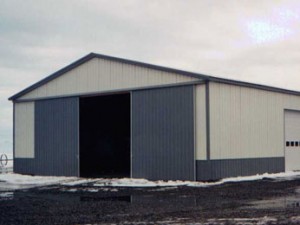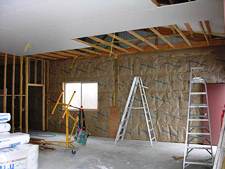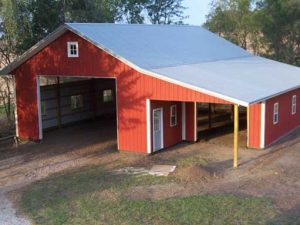Public Works Pole Barns, and Labor Costs
Many town/city jurisdictions in the United States have a Department of Public Works, which depending upon the individual municipality it may be responsible for a wide variety of activities including maintenance of streets and roads, maintenance and operation of drainage facilities, sewer collection lines, maintenance and operation of sewer treatment facilities, coordination of environmental activities, building code enforcement, construction inspection and approval, maintenance of public buildings, operation of a central garage, engineering services for construction projects including design and supervision, traffic control device maintenance, traffic control engineering.
Busy people.
Looking over the list of activities to be handled, there are plenty of them which involve the need for buildings for a myriad of functions. Anything involving equipment needs a secure place for storage and maintenance.
Traditionally post frame (pole barn) buildings to be used for public works operations are subject to going through a bid process. One of the requirements of many of these projects is the need for labor to be paid under the Davis-Bacon Act.
Learn more about the Davis-Bacon Act here: https://www.hansenpolebuildings.com/2013/07/pole-building-labor-costs/.
There is an alternative, however.
 Here is an example.
Here is an example.
Back in the day, my father and uncles were framing contractors in the greater area surrounding Spokane, Washington. Among building projects they framed, were several post offices owned by developer Harlan Douglass (find out more about Harlan Douglas here: https://www.spokane-rentals.com). Harlan would secure long term leases from the postal service for the buildings, then have them constructed without the need to pay prevailing wages.
This was a win-win for all involved. The postal service got their new buildings, with the monthly lease payments being less than what would have been payments on loans to construct. Harlan could take the leases to the bank to secure funding, so he was building with other people’s money – making a profit on the spread between the lease income and the underlying mortgage payment. Plus, Harlan could take the depreciation on the buildings as a paper loss on his taxes to offset this and other income. This process also negated the need to go through the public bidding process.
If your municipality needs a new post frame building, following the lead of Harlan Douglass might be an alternative which gets the end resultant sooner rather than later or never – at a savings to the tax paying public!









